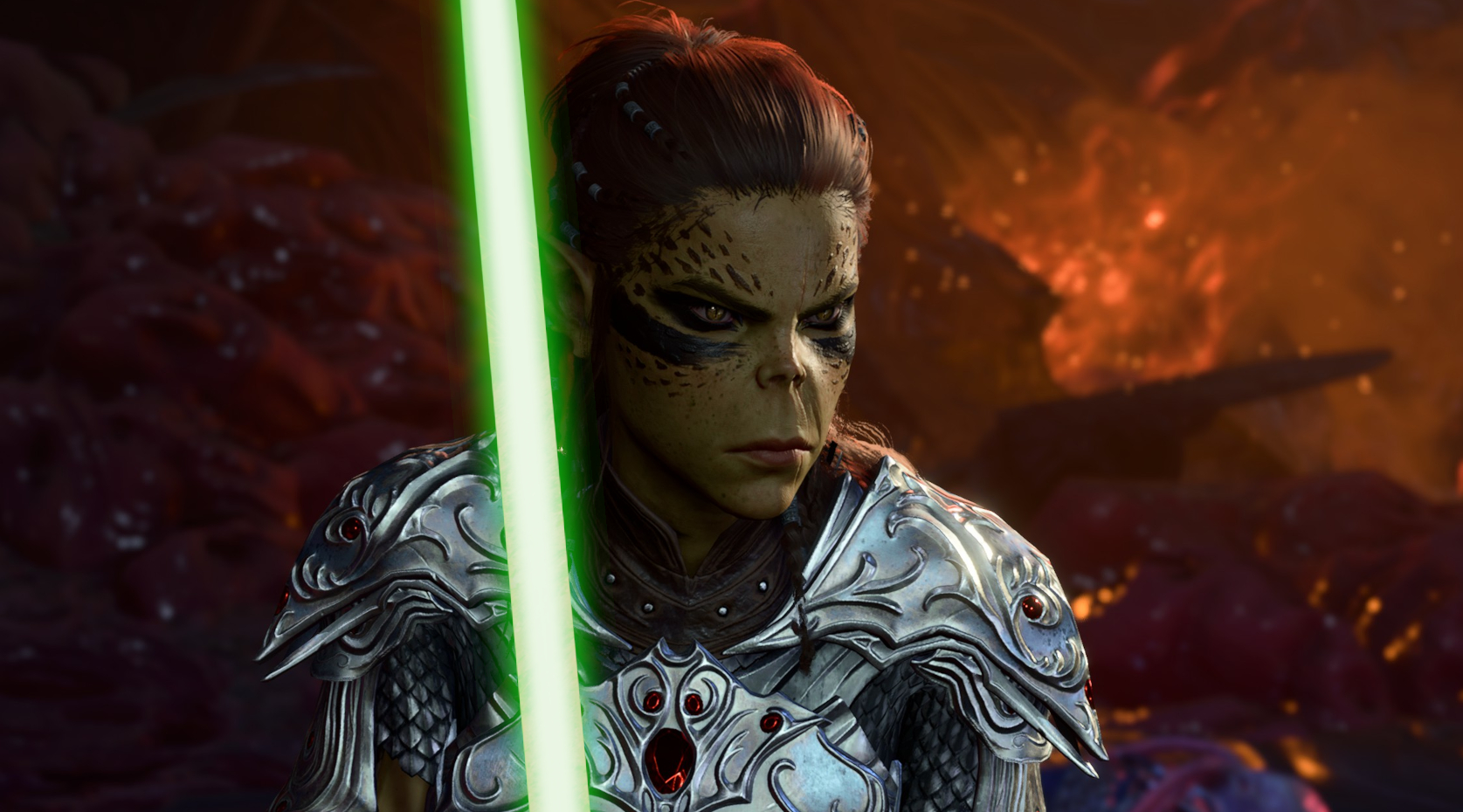
A whopping 19 years ago last week, Obsidian and LucasArts released Knights of the Old Republic 2—a rough, unfinished romp around the Star Wars galaxy. Despite being pushed out the door far too soon, the complex, philosophical yarn spun by Obsidian lifted it above the usual Star Wars fare, exploring the setting and the nebulous concept of the Force in a way that had never really been attempted before.
With only a year and change between this and the first KOTOR, you could have been forgiven for assuming that a golden age of Star Wars RPGs was upon us, but it wasn't meant to be. Nearly two decades later, we've yet to see either a follow up or a brand new Star Wars RPG, at least not a singleplayer one, despite the fact that the licence has grown into an uncontrollable beast under Disney.
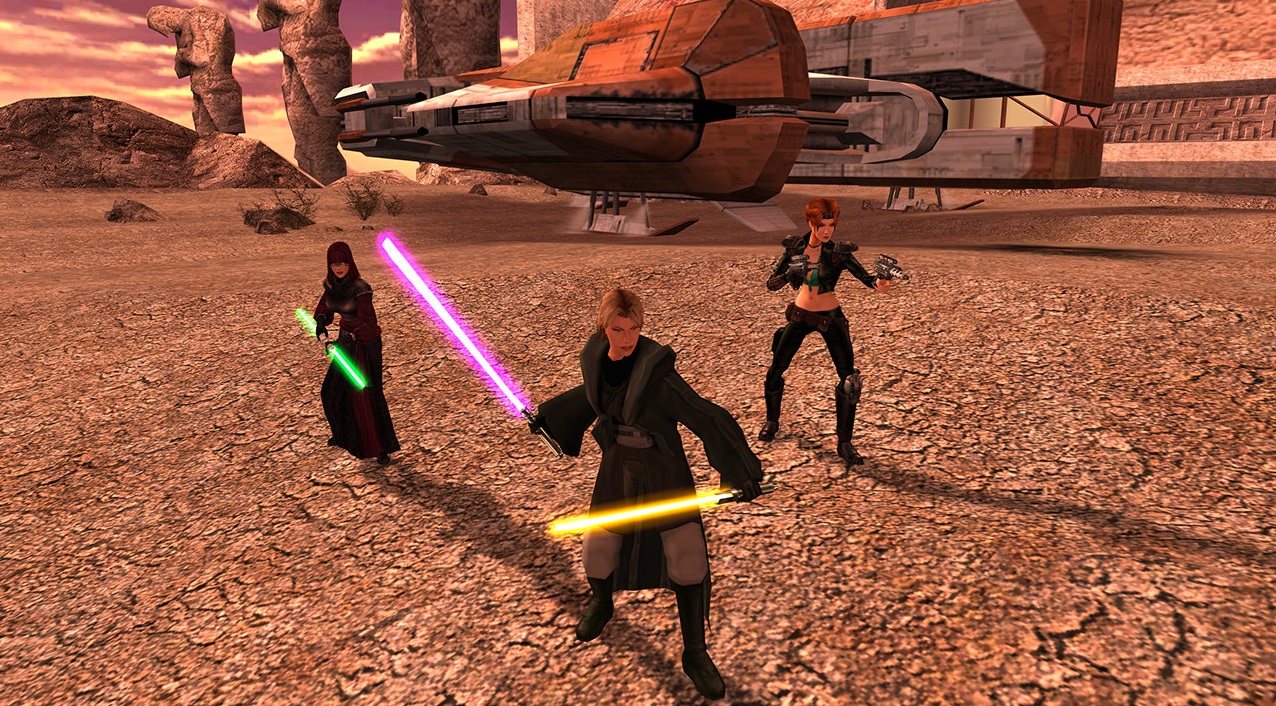
Instead, BioWare returned to the series and gave us Star Wars: The Old Republic, a story-driven MMO. Now, I love SWTOR. So much so that, two years ago, I wrote that "I don't want Knights of the Old Republic 3, I want Star Wars: The Old Republic 2". I'm still playing it today, and I'd still love a sequel. But two years on, I'm a bit burned out on live service games and MMOs, and I'm itching to return to the Star Wars galaxy as a solo adventurer.
The absence of a new Star Wars RPG is especially bizarre because it's a licence that almost feels built for RPGs. Lucas and his collaborators, and those who took up the mantle after he washed his hands of his creation, created a setting that had all the building blocks of an RPG completely by accident, full of rules and mechanics perfectly at home in games. There's the way the Force acts as an alignment system, and all the heroes and villains might as well have been made in a character creation screen, each with their own classes and identifiable skills.
So the structure of Star Wars makes it perfect RPG fodder, but so does its openness and flexibility. The vastness of Star Wars means it can be contorted around any experience or story, as evidenced by the multitude of Expanded Universe tales, even if Disney ended up killing most of them off. Lucas left other creators with so much room to play around with Star Wars, which is one of the reasons I don't really care about all the retcons or tweaks—it's a living universe that's always been in flux.
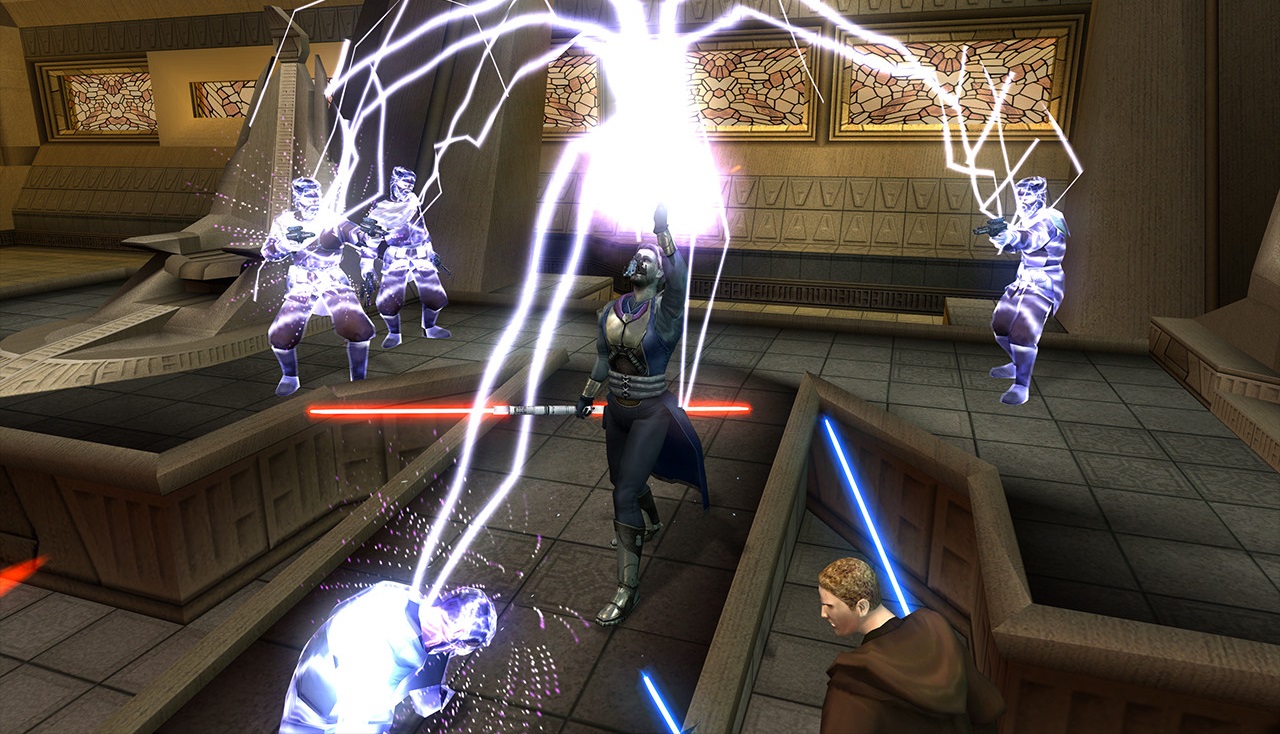
After decades of D&D, I still love embarking on new tabletop or CRPG adventures because of the breadth of possibilities, and that's the strength of Star Wars as well. You can be a spy or a bounty hunter or a Jedi, experiencing different lives and adventures, while still firmly embedded in a completely recognisable setting.
The similarities to D&D extend to its tabletop legacy. Star Wars: The Roleplaying Game first launched not long after the original trilogy had concluded, way back in 1987, and has gone through a variety of iterations and publishers over the years. A lot of Star Wars mainstays first cropped up in this TTRPG, including the names of some of the most recognisable alien species, like the Twi'leks. It also gave KOTOR its mechanical foundation.
But unlike Star Wars: The Roleplaying Game, KOTOR foisted a role upon us: that of an amnesiac Revan. KOTOR 2 did the same, putting us in the shoes of the Exile. Granted, BioWare and Obsidian offered different ways to play these characters, giving us a bounty of choices both in terms of morality and mechanics. I never felt like I was the author of Revan or the Exile's stories, though. I could nudge them in different directions, choose whether they embraced the Dark side or sought redemption, but it still wasn't my story—not in the way that a Star Wars: The Roleplaying Game campaign could be.
A new hope
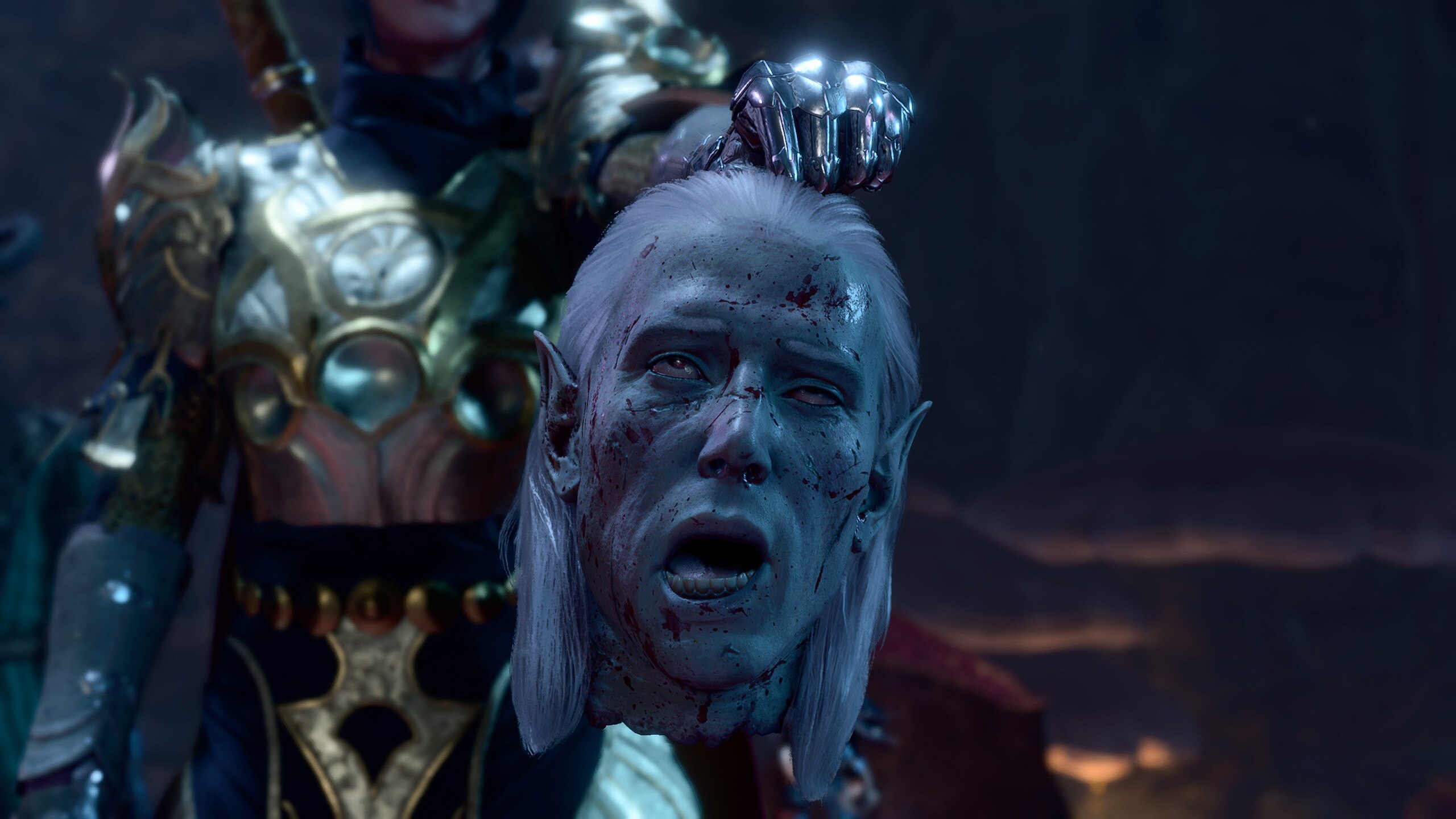
That's why I'm honestly not all that fussed about whether or not the KOTOR remake, first announced in 2021 and stuck in purgatory since then, ever comes to be. I don't need to play KOTOR again. I want to play a Star Wars RPG in the style of Baldur's Gate 3.
Baldur's Gate 3 offers a perfect framework for a Star Wars RPG that balances the freewheeling, sandboxy nature of TTRPGs with the need for videogames to have some additional direction. It's a game with an explicit story to tell, but one that wraps itself around player choices, going off in all sorts of different directions. Playing as a benevolent Bard is a drastically different experience to playing a serial killer Sorcerer, revealing entirely new sides to the game and thus giving players a sense of authorship, and with more nuance than the simple good/evil paradigm. You can be a good person making bad choices, or a villain to some and a hero to others. The script doesn't try to pigeonhole you.
This is what I want from a Star Wars RPG: a game where I don't have to just play as a Force user whose career choices amount to picking one side of the Force, where playing a bounty hunter or a soldier is just as viable, and gives me just as many meaningful and thrilling adventures. And this is not some pie in the sky dream. A version of this already exists in SWTOR, with its multitude of class stories, and previously in Star Wars: Galaxies, with its sandbox approach to MMO design.
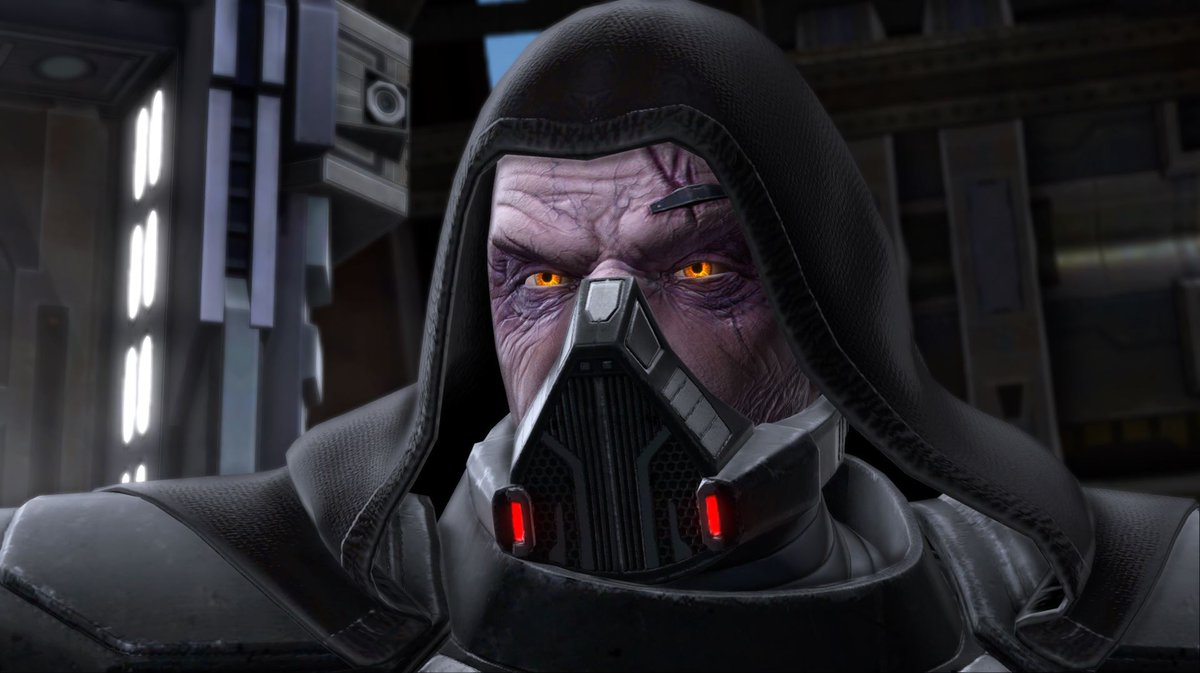
Both of those games needed to make sacrifices, however, due to their MMO nature. The grind. The repetitive quests. All that padding to keep people playing for years. SWTOR functions pretty well as a singleplayer game, and these days lets you focus on the best parts: the class and expansion storylines. But it's cursed with a rubbish, creaky combat system and some of the MMO trappings are still unavoidable. Galaxies, meanwhile, only exists inside fan-maintained servers, and while there's a lot to be said for its take on Star Wars, it's also not really a game that comes into its own unless you're willing to engage with the multiplayer side of things.
The Baldur's Gate 3 model also offers something that neither of those MMOs have: a simulation layer, reflecting the TTRPG philosophy of letting players do whatever they want. The way Larian lets players employ spells like telekinesis to move objects around or even just use their strength to turn a whole bunch of crates into a staircase elevates Baldur's Gate 3 well above its contemporaries. And it's just nice to be rewarded for creativity.
There's no reason why this couldn't be applied to a Star Wars RPG, where you could use the Force to manipulate the environment, or even a bounty hunter's grappling hook. I've been playing a Star Wars-themed Black Star TTRPG campaign with some of my colleagues recently and made short work of some trandoshan mercenaries by using my grappling hook to bring down a tree on top of them, which felt cooler than just about anything I ever did in KOTOR. Gimme more of that.
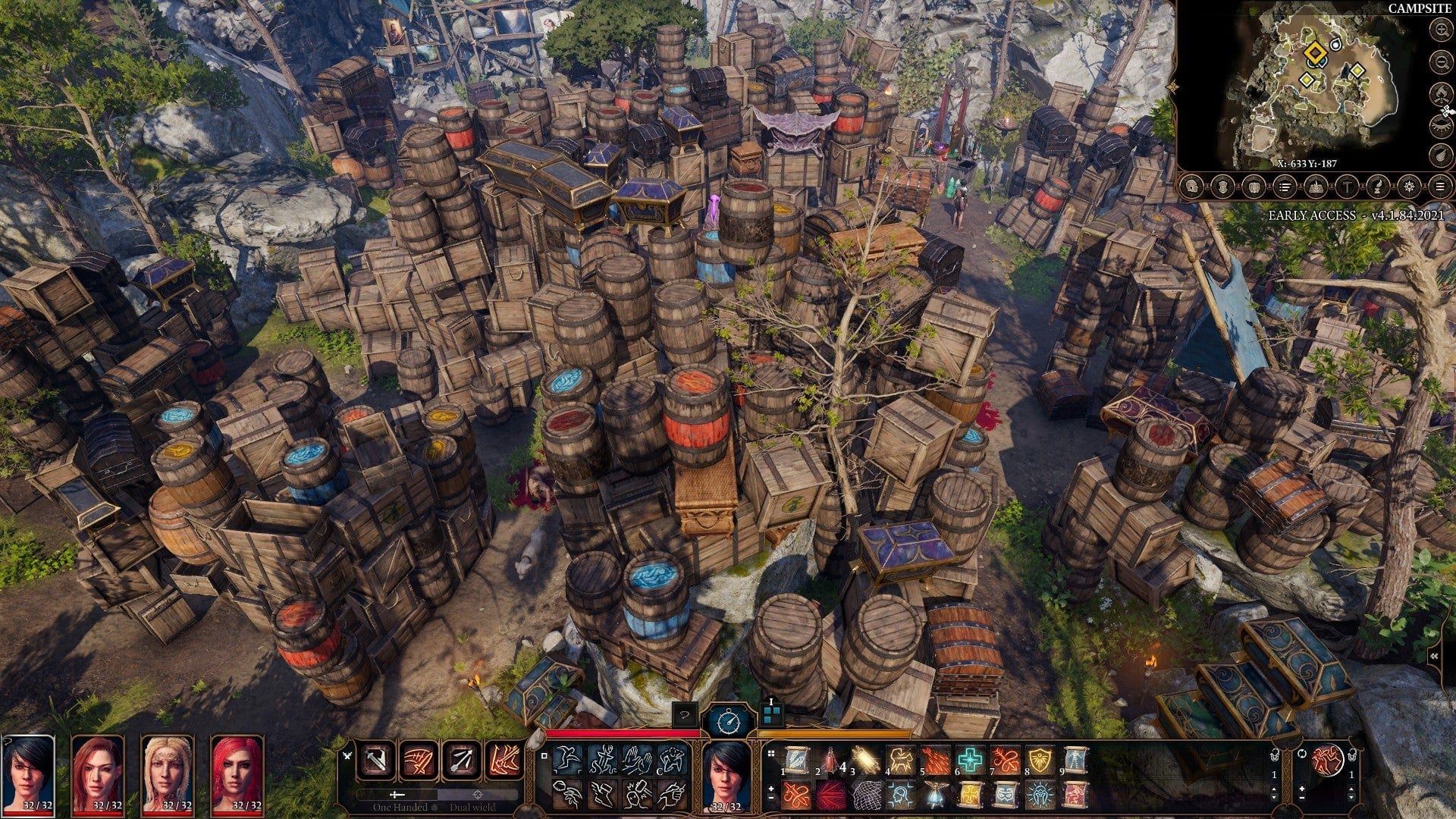
The developer most likely to pull this kind of thing off is, naturally, Larian. It's already proved itself more than capable of adapting a TTRPG. And there would be a pleasing symmetry to it all: BioWare went from a D&D CRPG to a Star Wars RPG, and with the BioWare magic now gone, Larian's really taken the mantle as the RPG developer of the moment. This is not to say that I consider Larian the 'new BioWare'. It's a very different kind of studio and charting its own course. The approach it takes with RPGs is much more systems heavy and flexible. What it's doing, honestly, is a lot more exciting.
Sadly, I'm not sure if Larian would be interested in such a proposition, as much as I'd be willing to let Vader chop off my hand to make it happen. While EA no longer has exclusive control over the licence, Larian would still have to work with Lucasfilm Games, and I'm not convinced this arrangement would give the studio the kind of flexibility it's used to. Sure, it had to work with Hasbro for Baldur's Gate 3, but D&D has always been pretty malleable—it's a brand driven by its community. Disney is comparatively tyrannical. Then there's the fact that Larian mostly seems interested in fantasy RPGs. The last time it delved into sci-fi was way back in '97, with its first game, LED Wars.
Then again, I never thought we'd be so lucky to ever get a Baldur's Gate from Larian, yet here we are. Miracles do happen. And now that I've committed this to the page, I don't think I'll ever be able to stop thinking about it. It's inevitable: I'm going to be standing outside Swen Vincke's home, in the rain, with a boombox and a lightsaber, pleading for him to make me the happiest man in the world. Sorry, Swen.







